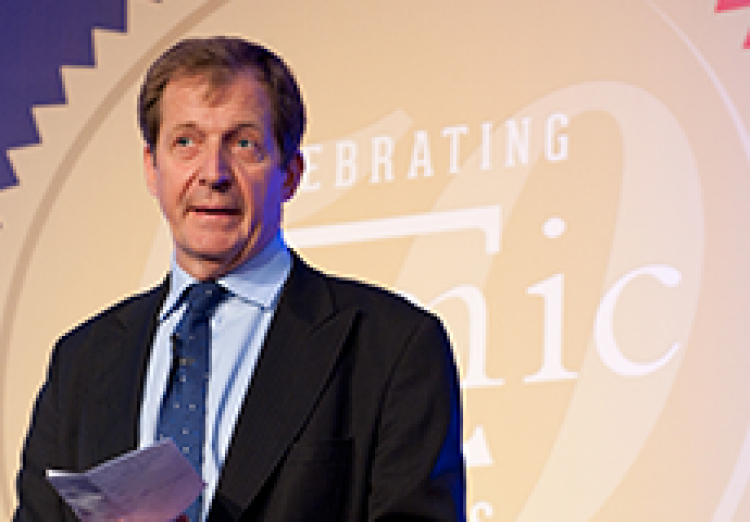Crisis – what crisis? Campbell gives an insider’s view of the Blair years.

What were the five biggest crisis of Tony Blair’s period in power? Iraq and 9/11 were on the list of his former ‘spin doctor’ Alastair Campbell, as you would expect, as was the accidental allied bombing of the Chinese embassy in Belgrade during the war in Kosovo. The two that he chose as the worst, however, were a surprise.
He singled out the lorry drivers’ strike in 1999 over the level of duties. The protest struck a chord with the public who, said Campbell, were largely immune to rational debate on the subject. Things came to a head when the NHS came within 24 hours of running out of fuel – a heightening of the crisis that actually brought it to an end. It was this realisation that made the protagonists, including the hysterical elements of the media, realise that things had gone too far. This crisis, he said, felt the worst of the entire premiership.
His second choice was the burning of cattle in herds of cattle infected with BSC. What seemed like a serious agricultural problem made it onto American TV, giving the impression that the UK was going up in flames. Tourism and, more importantly, Brand GB took a nosedive.
Campbell urged delegates to know the difference between a frenzy and a crisis, something he defined as a situation that threatens to overwhelm an organisation and requires good decision-making. The excitement over John Prescott punching a voter at the start of the 2001 election campaign seemed to some like an existential threat, but was nothing of the sort.
In an entertaining and informative talk, he told the packed audience that a crisis required quick decision-making and a centralised command and communication set-up. Follow your instinct, he urged.
Political failure and “mind-boggling” debt threat to US stability - Justin Webb
The possibility that political failure in a rapidly changing United States may cause lasting economic damage cannot be ruled out, said former BBC US editor and now Radio 4 Today programme presenter Justin Webb.
Opening the conference, he said the country needs to have an open and honest conversation with itself, especially over the country’s “mind-boggling” deficit. A resolution has been made more difficult by the failure of politicians of both parties to tell voters the truth.
Intelligent debate is further hampered, he said, by the sound-bite culture and the rise of social media with its bias against nuanced discussion. “The ability to have a national conversation in the modern digital era seems to me to be profoundly damaging,” he said.
Demographic change, with non-white set to form a majority of the population, could have a significant impact on the debate. These groups had different priorities, and they could unenthusiastic about attempts to cut federal spending.
Nonetheless he urged delegates not to be over-influenced by the emergence of rival countries, most notably the BRIC economies. “America is still where the money is,” he said.
Watch the full Alastair Campbell Keynote Speech here

The fuel protest in 1999 felt like the biggest crisis of the Blair years. Alastair Campbell
